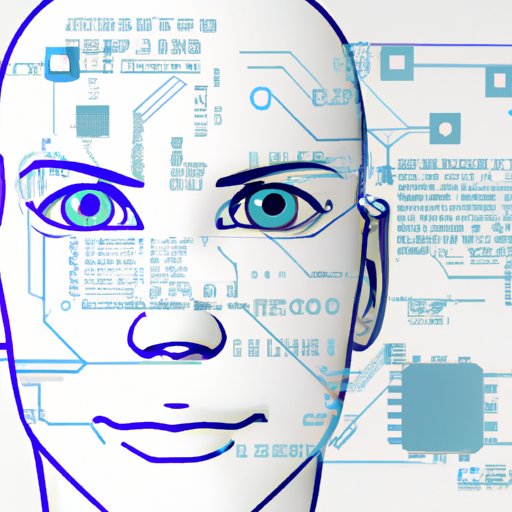Introduction
Artificial intelligence (AI) is an area of computer science that focuses on creating intelligent machines capable of performing tasks that typically require human intelligence. AI has been part of our lives for decades now and its presence is becoming increasingly prevalent. While there are many potential benefits of AI, such as increased productivity and efficiency, there is also the potential for it to pose a threat to humanity in various ways. This article will explore the potential dangers of AI and examine the pros and cons of AI in the workplace.
Examining the Potential Dangers of Artificial Intelligence
One of the primary concerns of AI is its potential to cause harm to humans. AI systems have been designed to operate with autonomy, making decisions without human input. This raises ethical issues related to who is responsible for the actions of AI systems and how they should be held accountable. In addition, AI systems can be used to manipulate people or data, which could lead to unethical practices such as censorship or surveillance.
Another potential danger of AI is its potential to surpass human cognitive abilities. AI systems are capable of learning and adapting quickly, enabling them to outperform humans in many tasks. This could lead to a situation where AI systems are better than humans at decision-making and problem-solving, potentially leading to job losses and a decrease in human control over certain aspects of life.

Investigating the Pros and Cons of AI in the Workplace
AI has the potential to revolutionize the workplace by increasing productivity and efficiency. AI systems can automate mundane and repetitive tasks, freeing up time for employees to focus on more complex tasks. This could result in increased job satisfaction, as well as increased profits for businesses.
However, there are also potential drawbacks to using AI in the workplace. AI systems may replace humans in certain roles, resulting in job losses. Additionally, AI systems may not be able to fully replicate the creative thinking and problem-solving abilities of humans, ultimately limiting their usefulness in certain areas.
AI also has the potential to negatively impact social interactions in the workplace. AI systems are programmed to follow certain rules and regulations, which may limit the ability of employees to communicate freely with one another. This could lead to a decrease in collaboration and innovation, as well as decreased morale amongst employees.
Conclusion
In conclusion, AI poses both potential benefits and risks to humanity. While AI systems may increase productivity and efficiency in the workplace, they could also lead to job losses and decreased human control over certain aspects of life. It is important to consider the ethical implications of AI, as well as its potential to surpass human cognitive abilities, when deciding whether or not to implement AI systems in the workplace.
Further research is needed to fully understand the implications of AI on humanity. It is essential that any AI systems developed are designed with ethical considerations in mind and that their capabilities are carefully monitored and controlled to ensure that they do not pose a threat to humanity.
(Note: Is this article not meeting your expectations? Do you have knowledge or insights to share? Unlock new opportunities and expand your reach by joining our authors team. Click Registration to join us and share your expertise with our readers.)
